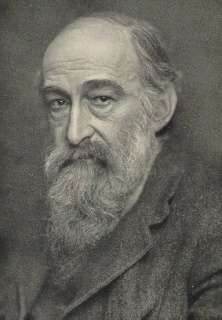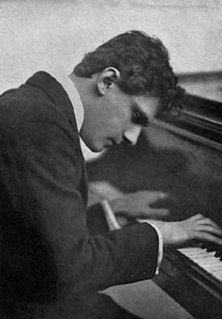A Quote by Philip Larkin
The poetic impulse is distinct from ideas about things or feelings about things, though it may use these. It's more like a desire to separate a piece of one's experience & set it up on its own, an isolated object never to trouble you again, at least not for a bit. In the absence of this impulse nothing stirs.
Related Quotes
I want my music to be something that people use in order to access parts of themselves. So in that sense, every piece I write is about all emotions at once, about the lines in between. It's never only about one thing or another. It's emotionally getting at those things that we can't really describe - things for which we don't have labels. So yes, it's about something, and it has a use. It's neither about nothing nor about something concrete - it's about what you bring to it as a listener.
I felt that I could swim for miles, out into the ocean: a desire for freedom, an impulse to move, tugged at me as though it were a thread fastened to my chest. It was an impulse I knew well, and I had learned that it was not the summons from a larger world I used to believe it to be. It was simply a desire to escape from what I had.
I believe that it may happen that one will succeed, and one must not begin to despair, even though defeated here and there; and even though one sometimes feels a kind of decay, though things go differently from the expected, it is necessary to take heart again and new courage. For the great things are not done by impulse, but by a series of small things brought together. And great things are not something accidental, but must certainly be willed. What is drawing? How does one learn it? It is working through an invisible iron wall that seems to stand between what one feels and what one can do.
There are significant relationships, of course, between wanting things and caring about them..The notion of caring is in large part constructed out of the notion of desire. Caring about something may be, in the end, nothing more than a certain complex mode of wanting it. However, simply attributing desire to a person does not in itself convey that the person cares about the object he desires.
Science manipulates things and gives up living in them. It makes its own limited models of things; operating upon these indices or variables to effect whatever transformations are permitted by their definition, it comes face to face with the real world only at rare intervals. Science is and always will be that admirably active, ingenious, and bold way of thinking whose fundamental bias is to treat everything as though it were an object-in-general - as though it meant nothing to us and yet was predestined for our own use.
The media loves to spend a lot of time talking about itself and do a lot of navel-gazing, which the general public isn't quite that interested in. They aren't really particularly concerned with whether our feelings are hurt or the things that we complain about. They have their own lives and their own jobs that are difficult as well. I think where the media has gotten itself in trouble is the sense that they're much more interested in things like parsing words and getting into fights about little minutia, as opposed to stepping back and seeing what the big picture is.







































